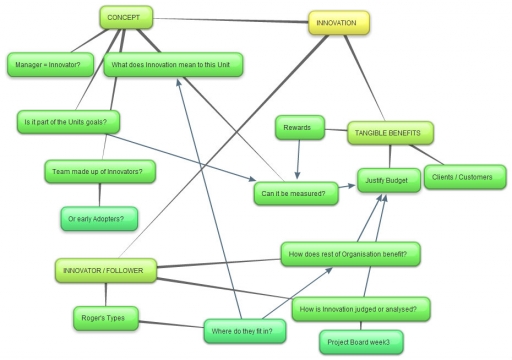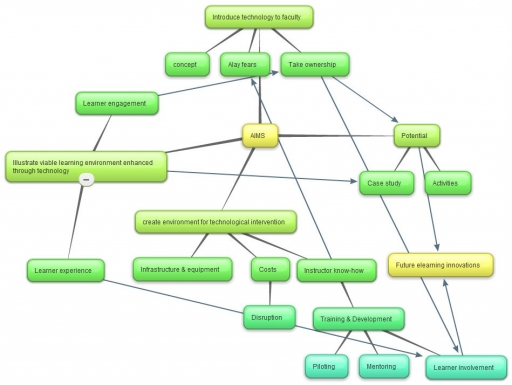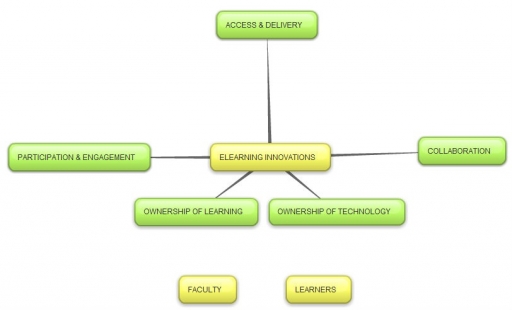Whilst discussing our current e-tivity activity [Week 16 see previous post] Elizabeth and I discussed how socialisation and collaboration were current challenges in our roles.
With Elizabeth's help I pinpointed my challenge of getting input & buy-in on forums from part-time, face-to-face learners to be in Stage 2 of Salmon's 5 stages. Interestingly, it goes beyond the elearning element and originates in the lack of socialisation in the class environment, and thus is more pronounced in the online environment.
Elizabeth discussed her workplace where restructuring has led to once competitive teams being expected to work and therefore collaborate together. She noted that because there is Communicative technology in place that this is expected to be intuitive. But there are a lot more barriers to working and communicating effectively then just infrastructure, I would guess there will be baggage, emotive and psychological barriers appearing. Trust in our people is great, and it's something people recognise and even expect of their managers. But trust is not a one-time purchase of cookies on discount in your supermarket - it's the bread and milk you go back for every couple of days.
Further insights here: http://blogs.hbr.org/hbr/hbreditors/2011/05/embedding_collaboration_from_t.html


